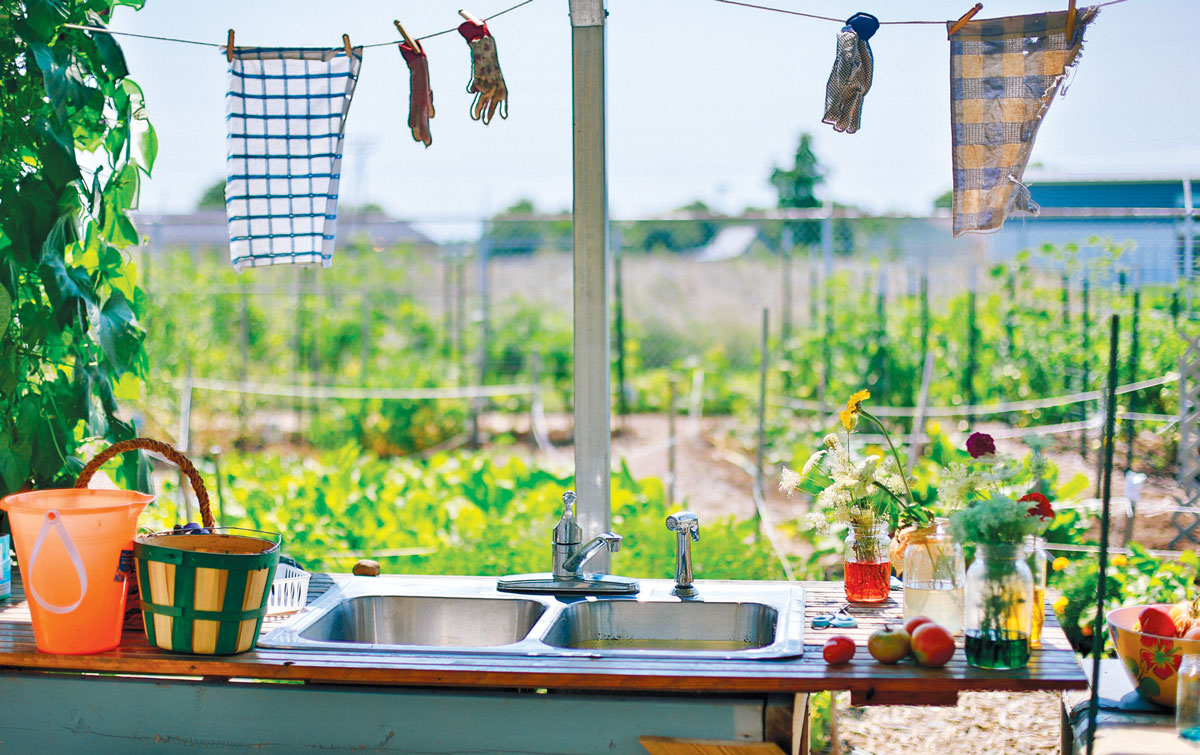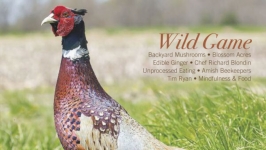Green Machine Gardens
Giving those with disabilities the seeds to grow
The Green Machine is revving its engine. The local organization gives those with developmental disabilities a boost by offering a rich working environment in paid positions that involve farming, harvesting, and customer service.
Located at the Opportunity Center in Carroll, Ohio, which sits on the western half of Fairfield County, the Machine is known for producing microgreens—shoots of leaves that are much more nutritious than leaves in their larger state. If you can name the vegetable or fruit and it can be grown in Ohio, they probably grow it, too. They boast tomatoes, green beans, summer squash, zucchini, onions, raspberries, peppers, and more. “Just everything,” says Ann Brocker, a master gardener volunteer.
Established three years ago, the Machine is still focused on its original mission of imparting a bounty of work experiences to those with developmental disabilities, and Ann has been there for almost the entire journey, seeing its gardeners and the program flourish.
“It started small and continued to grow,” says Ann.
Starting off as just a garden, the Machine soon opened the Green Machine Farm Market where its gardeners were able to sell their produce along with seeds they collected and hypertufa planters.
The job is certainly different from other jobs that those with developmental disabilities may have. Some of the gardeners do have other jobs, Ann notes, but the program is unique in that it lets the gardeners see the value of their work, full-circle, unlike one-task jobs.
“It’s a real hands-on project and it’s a fulfilling project because [the gardeners] see it from start to finish. They have a real sense of accomplishment and this is something that they have produced and they know that people want it and that they can eat it,” says Ann. “I love it when I see them eat in the garden. You know, it’s good. They can tell the person at the farm market, ‘this is good.’”
Gardeners can let customers know when produce is good in places beyond the market, however. The Machine offers free tours of the garden for individuals or groups to give its gardeners more exposure to interacting with the public in what Ann describes as “reverse integration.”
When the gardeners aren’t interacting with others, they are weeding, planting and harvesting and the hard work pays off with a total of four restaurants serving up their delicious grown goodness: Shaw’s Restaurant and Table 1 in Lancaster, Village Wine in Canal Winchester, and the restaurant at the Inn at Cedar Falls. More restaurants may be added as the gardeners have seen how altered farming techniques can make all the difference.
Recently, the Machine has switched to a vermiculture—where worms are at work—to help produce its microgreens. “They’re a special kind of worm, smaller than what you see in the garden. What we do is we plant right on the top of the dirt and the worms come and after we harvest, the worms come and eat the roots, what’s left of the microgreens, and then the worm castings help fertilize the dirt and they help eat the roots,” says Ann. “So, it’s all a big process so we do not have to put new dirt in the trays every time; we just plant them in the same ones and the worms take care of it for us. We found that it almost doubled our production.”
With extra time and doubled production, employees have time to get creative.
“Something that all the gardeners are looking forward to is a 15-foot-long tunnel and we’re planting gourds on it and the gourds that grow will hang down into the tunnel,” says Ann. “So when you walk under it there will be gourds all over.”
While waiting for the gourds to come in the fall, gardeners explore more of their craftiness by making scarecrows.
But what’s really cooking next for the Machine is cooking—the program is looking to teach its gardeners how to prepare the food that they grow.
Although new ideas continue to sprout so that the program never hits a stopping point for growth, learning goes both ways. For Ann, the program isn’t just beneficial to those with disabilities.
“It gave me a purpose,” says Ann on her volunteering for the Machine after retiring from a career as a librarian, “and I’ve learned so much from the gardeners.”
The market is open Monday and Friday 11am–2pm, and Thursday 1pm–6pm. Contact fairfieldcountygreenmachine@yahoo.com for tour information.






